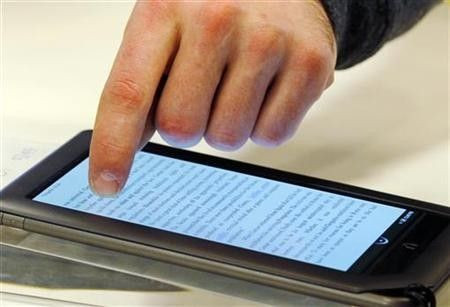Reading An Ebook Before Going To Bed Can Affect Your Sleep: New Research

Reading your favorite e-book before going to bed may not be a good idea, a new research suggests. While reading a book is never considered a bad habit, researchers from the Harvard Medical School's sleep medicine department in Boston, US declare found that the device used to read the e-book causes problems to one's health. Staring into a phone or a tablet in the dark can affect one's sleep drastically.
The researchers conducted an experiment on 12 healthy adults, reported The Guardian. Some of them were made to read an e-book from a light-emitting device, while others had to read from paperback books at night. At the end of their two-week study, they found that those who read e-books were less sleepy and took a longer time to fall asleep compared with those reading printed books. The former also experienced a detriment in their quality of sleep. The hormone that helps a person in falling asleep, melatonin, had also been reduced.
The research was published in the Proceedings of the National Academy of Sciences. It stated that sleep deficiency and disrupted sleep patterns were after effects of using light emitting devices before sleeping. This "can have adverse impacts on performance, health and safety". The research comes at a time when the average time people sleep is less than the standard duration one needs to rest. Researchers state that sleep deprivation can lead to an increased risk for breast cancer and prostate cancers. It also causes cardio vascular and metabolic diseases.
"We found that the use of these devices before bedtime prolongs the time it takes to fall asleep, delays the circadian clock, suppresses levels of the sleep-promoting hormone melatonin, reduces the amount and delays the timing of REM sleep and reduces alertness the following morning," the researchers revealed.
Dr. Charles Czeisler, professor of sleep medicine at Harvard Medical School and lead researcher, told BBC that since even youngsters use too much of technology, they may face health problems in the long run. Therefore, a study to evaluate these consequences is necessary.





















